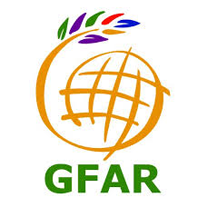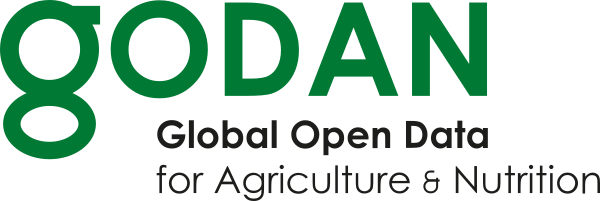About
Code of Conduct Constructor
Learn about codes of conduct for open agriculture data, then build, save and share your own.
“Once the farm data code of conduct is made FAIR and PRECISE, this will attempt to strengthen the position of small and big farmers against anti-competitive practices and also balance the flow of value and benefits in the process of responsible sharing and using of farm data”.
Stephen Kalyesubula
Youths in Technology and Development Uganda (YITEDEV), Godan African champion and trainer for Data4Ag, farmer.
Codes of conduct, voluntary guidelines and sets of principles around how to transparently govern farm data are a recent thing. While laws and regulations that govern personal data are becoming more and more common, legislation still does not cover data flows in many industries where different actors in the value chain need to share data while protecting all involved from the risks of data sharing. Data in these value chains is currently governed through private data contracts and licensing agreements, which are normally very complex and over which data producers have very little negotiating power.
Codes of conduct have started to emerge to fill the legislative void, setting common standards for data sharing contracts. Codes provide principles that the signatories agree to apply in their contracts. Farm data is an example of such sensitive data flows. Farm data flows go from the farm through many other actors (extensionists/ advisory service providers/ ag tech companies, farmers’ associations, financial service providers, government…), before returning – aggregated and combined and in the form of services – back to the farm. Such flows potentially open up sensitive data that should only be shared with specific actors under specific conditions, or should be anonymised in order to avoid harming the farmer’s interests and privacy. This is especially true in the case of smallholder farmers, whose farm data often coincides with household data and personal data, and who are in the weakest position to negotiate their data rights.
This online tool, therefore, also has another important practical purpose: providing the conceptual basis for general, scalable guidelines for everyone dealing with the production, ownership, sharing and use of data in agriculture.
Build your own code of conduct
We have created a tool to allow you to select Clauses that might be of relevence, letting you easily produce a printable and saveable Code of Conduct.
Scope of the online tool on codes of conduct
Codes of conduct are voluntary guidelines(not legally binding) and principles on how to transparently govern farm data and have been emerged in the recent years.
The rationale of the development of these codes of conduct is to fill the legislative void, set common standards for data sharing contracts and provide fair and transparent governance structures for agricultural data by ensuring farmers have confidence in how their data is collected, used and shared.
Since 2014 there are three main codes of conduct that have been developed around the use of agriculture data:
- The US American Farm Bureau Federations’ Privacy and Security Principles for Farm Data,
- the New Zealand Farm Data Code,
- the EU Code of conduct on agricultural data sharing by contractual agreement
- and very recently the Australian Farm Data Code.
These codes cover central issues, such as terminology, data ownership, data rights (including right to access, data portability, and the right to erasure/right to be forgotten), privacy issues, security, consent, disclosure, fair and equitable use of farm data and transparency.
With this tool we are trying to ensure that the benefits of the digital revolution in agriculture reach everyone involved, especially farmers; there is a need to identify sustainable ways to support data sharing and enhance trust among various stakeholders.
This online tool sets out principles, guidelines and international standards of behaviour for responsible practices with a view to develop a code that could better empower farmers with more equitable data flows.
These Guidelines are voluntary and aspirational in nature and could be used as a guidance across borders, also in countries where no general approach has been developed yet taking of course into account the relevant national laws and regulations.
The Guidelines help you produce a guidance list to consider when sharing or collecting agricultural data with partners.
They aim to:
- raise awareness around the collection, use and sharing of farm data
- improve transparency, clarity and honesty in the way farm data is collected, used and shared
- encourage the fair and equitable collection, use and sharing of farm data in a way that benefits farmers
- build trust and confidence in the way farm data is collected, used and shared so that, where appropriate, farm data can be utilised in ways that bring benefits in agriculture
- allow flexible implementation, so that providers can establish appropriate practices around farm data collection, use and sharing.
“One of the biggest challenges is around data privacy and what is shared versus what is not shared. And my perspective on that is consumers are willing to share if there’s value returned. One-way sharing is not going to fly anymore. So how do we protect and how do we harness that information and become a partner with our consumers rather than kind of just a vendor for them?”.
Zoher Karu
Head of data and analytics, APAC and EMEA, CitiGroup
Method
This online tool was created by GODAN, CTA and GFAR initially from the review of the existing codes of conduct, voluntary guidelines and principles relevant for farm data sharing. It is produced in the context of a consultative process taking place in the GODAN/CTA Sub-Group on Data Codes of Conduct and around a planned global collective action on Empowering Farmers through Equitable Data Sharing.
The initial draft was circulated for input and feedback during the first KTBL workshop on codes of conduct and also during the virtual Kampala Hackathon and incorporated into this edition.
The proposed clauses have been selected from the US American Farm Bureau Federations’ Privacy and Security Principles for Farm Data, the EU Code of conduct on agricultural data sharing by contractual agreement and the Australian Farm data code during the consultation as a first starting point for developing an ag code of conduct.
It is an evolving tool, with recommendations for a general, scalable and further customisable code of conduct template that best addresses farmers’ needs around fair and responsible data sharing.
The next stage is to consult externally for further input.



